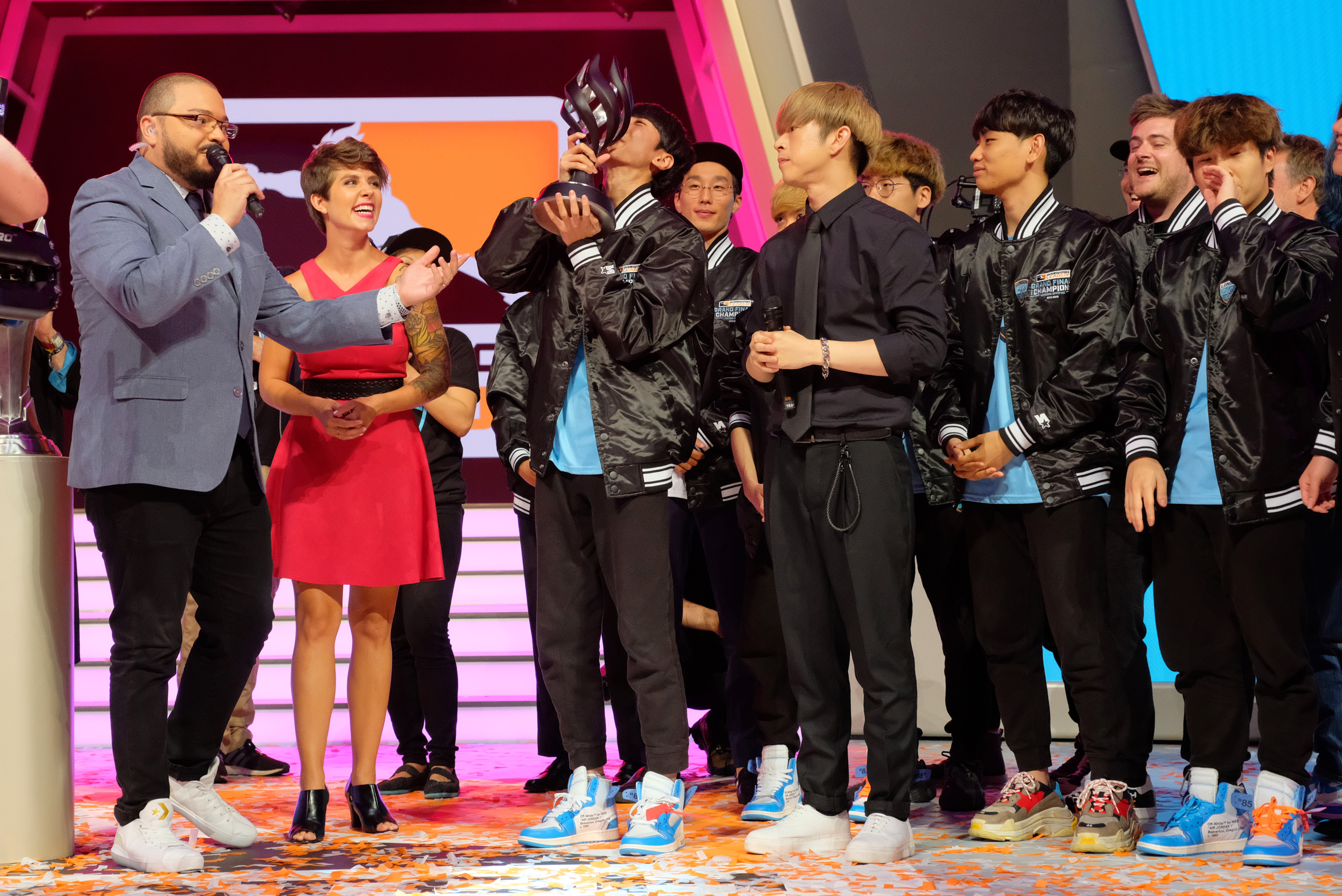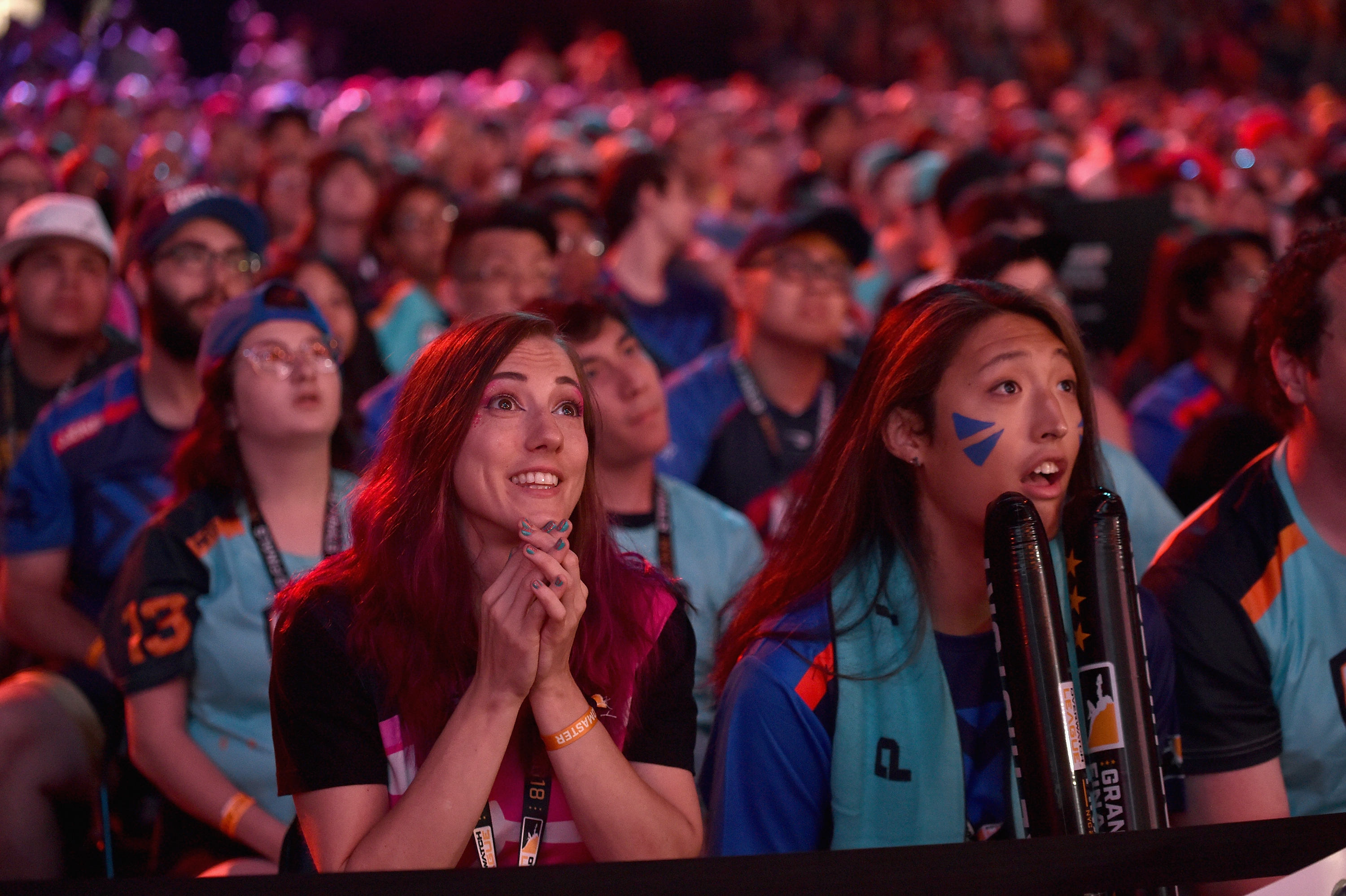Where does Overwatch League go from here?
The League started off strong, but there is work to be done ahead of the 2019 season.

In 2016, Blizzard asked a question to Overwatch esports fans: What's in a name? Today, the world knows that the London Spitfire are Overwatch League's inaugural season champions, and that Gesture and Profit aren't just simple words in this community. We've seen that Shanghai's 0-40 record couldn't dampen the fanfare surrounding Geguri, the league's first female player. Everyone is well aware of the Zenyatta assassin and league's first MVP who goes by Jjonak. These are household names now, each with their own unique voice and story.
Overwatch League has started off on a strong note, but there is still much work to be done so that other names can continue to be immortalized. Thus far, staying ahead in the esports world has been an aggressive game of chess for Blizzard. The OWL team had to take some major risks without much historical data to build off of—and without any time to rest.
"It's been a labor of love all year," says Jon Spector, Director of Franchises and Competition for Overwatch League. "I came from the NBA before this, and in the off-season is when you rested. You could do that because you had decades of knowing what was going to happen next season. For us now, the off-season is 2019 planning and how to make the product better and innovating."

No rest for the weary
Proper downtime was a massive pain point for most players, coaches, staff, and everyone involved in Overwatch League. Several players and coaches had to take some personal time off during the inaugural season for the benefit of their mental health, while Alberto "Neptuno" González Molinillo of the Fusion had to decline a spot on Team Spain for the Overwatch World Cup due to burnout. Being ready for games and upcoming stages usually meant constant preparation and training on off-days, which is something Blizzard realized as the 2018 season progressed.
There really hasn't been an opportunity for the players and coaches and team staff to take a time-out.
Jon Spector
"We had these four stages where you were playing for five weeks, then you got a week off," Spector elaborated. "What we thought was, 'Great, they'll take that week to rest and be good to go again.' But what actually happened is they need that week to practice and get ready. There really hasn't been an opportunity for the players and coaches and team staff to take a time-out."
An added layer of stress came from a factor that many consider one of esports' greatest attributes: patch adaptation. The development team had to roll out patches as best they could to match Overwatch League's schedule, all while delivering fresh or updated content for the general player base. On the flipside, teams had limited time to prepare for huge meta shifts, usually resulting in a restructuring of power rankings every month. Minus the Stage Four issues with Hanzo, Spector feels like Blizzard got it right for the most part, but that, "...we want the game the pros are playing on stage to match the game fans are playing on the live client, so we're going to look at ways to tweak the schedule so we can match that up better."
As if there wasn't enough riding on every single game for these players, there have been rumors that league computers aren't great, and that OWL should look into better rigs for next season. In a postgame press conference, both Aaron "Bischu" Kim and Ted "Silkthread" Wang of the Los Angeles Gladiators hinted that the on-stage computers perhaps weren't as good as they should be. A source told PC Gamer that Bischu later said that he sometimes experiences one to two seconds of what he believed was hardware lag, and that their home computers performed better. However, not all players feel that the computers are that bad.
Keep up to date with the most important stories and the best deals, as picked by the PC Gamer team.

"We've experienced occasional frame rate drops," says Matt "CoolMatt" Iorio from the Houston Outlaws. "But whether that can be attributed to RAM or not, I couldn't tell you with any certainty. I have also heard from other players that RAM is the culprit, but I'm not knowledgeable enough to make that assessment myself." CoolMatt went on to suggest that though this might not be Bischu's intent, he knows that sometimes players like to "cry wolf" and get upset over minute interruptions that only they seem to be experiencing.
As Overwatch League matures and scheduling and hardware issues get resolved, Blizzard will remain in a unique place within the esports industry and local cultural ecosystems. Overwatch pros will continue making first pitches at baseball games, and the game itself will always strive to be as welcoming to new players as it can be. As a symbol of inclusivity, Overwatch and OWL will keep going strong on their current path.
"Our goal always has been to have the best players in the world playing in Overwatch League," says Spector. "I think we've had some success with that already, if you think about from an inclusivity perspective. We have players from nineteen different countries competing in season one, and that's pretty cool."
The diversity doesn't stop with the players. If you've ever been to the Blizzard Arena, you know that the crowd is well-mixed, and that the community is more than prepared to ensure that Overwatch League is always a safe place to cheer as loud as you want no matter who you are. And yes, women do make up a huge part of the attendance. Spector takes pride in having Tracer be the face of Overwatch. "It inspires us to see the diversity of the fans and people who support Overwatch League," he says.
Indeed, that group of supporters will be expanding next year, with new teams confirmed for Atlanta and Guangzhou, and Toronto apparently knocking on the door. With the type of money and attention still coming to OWL, the 2019 season appears ready to continue making good on Overwatch League's promise to players seeking greatness and international fame. So long as the schedule is fixed and Blizzard continues improving the viewer experience, there's nothing stopping Overwatch League from jumping further into the mainstream.

